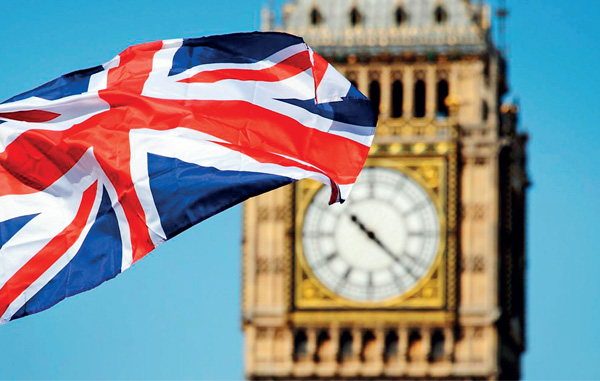26 Oct 2016 - {{hitsCtrl.values.hits}}

 We now know that the UK will trigger Article 50 of the Lisbon Treaty by the end of March 2017, giving the country two years to negotiate its exit from the European Union.
We now know that the UK will trigger Article 50 of the Lisbon Treaty by the end of March 2017, giving the country two years to negotiate its exit from the European Union.
But while most pundits have focused on the UK’s future policies regarding the EU, the UK must think seriously about how to use the opportunity of Brexit to reconsider its trading relationships with Asia, the world’s fastest-growing region.
Endless possibilities for the UK and Asia
Asia is a bright spot in a fragile world economy. While advanced economies are projected to grow at an anaemic 1.4 per cent this year, developing countries in Asia continue to grow at 5.7 percent, with India leading the way at an impressive 7.4 per cent clip. What’s more, the region is home to a growing consumption-oriented middle class, which will reach over 2bn people by 2030.
However, trade between developing Asia and the UK is well below potential. The UK’s exports to developing countries in Asia were worth £41 billion in 2015, only one tenth of the UK’s global exports. Meanwhile, imports to the UK from developing countries in Asia were £84 billion in 2015, almost one fifth of the UK’s global imports.
Tariffs and other barriers have impeded Asia-UK trade. In 2014, average tariffs on all goods fell to historic lows of 8.7 percent in developing countries in Asia and 5.3 per cent in the EU, but tariffs for sensitive sectors like agriculture remain quite high and non-tariff measures are on the rise. Cumbersome behind-the-border regulations have added to trade costs.
Playing to UK’s strengths
Brexit offers the UK an opportunity to develop a more independent trade policy towards Asia that can play to its inherent and historic economic strengths and bring benefit to both parties.
The UK is an attractive trade partner to Asia. Developing countries in Asia face massive future demand for technology that will help them mitigate and adapt to climate change – an area where the UK is well placed to deliver quality high-technology solutions. Likewise, the UK’s cultural and educational sectors, its financial services and aerospace industry are all in a prime position to take advantage of the structural transformation underway in countries like China, which are moving towards a post-industrial, service-based economy.
China, India and the 10 states that comprise the Association of Southeast Asian Nations, or ASEAN, have tremendous potential as trading partners. Home to a third of the world’s population, they have developed sophisticated global value chains (GVCs) that produce labour-intensive and medium-technology manufactured goods that could be exchanged for imports of services and high-end goods from the UK. GVCs could also encourage two-way foreign investment in manufacturing and energy and transport infrastructure.
Of course, as with any trading relationship, there will be two sides to any future negotiation on trade. That means the UK will need to reconsider visa rules that hinder business-to-business relationships between the UK and many countries in Asia.
Creating lasting trade ties in region
The UK’s Department for International Trade, which was set up following the Brexit vote to forge global trade ties, should consider several ways to position the UK to benefit from trade with Asia.
First, the UK should start talks as soon as feasible on free trade agreements (FTAs) with the region’s largest economies, including China, Japan and Korea. These should be comprehensive and of a high standard. Challenging issues in some Asian countries’ business environments may arise during negotiations, such as non-tariff measures against imports, industrial subsidies for state-owned enterprises, and intellectual property enforcement. However, recent trade deals between China and both New Zealand and Australia offer templates for resolving
these issues.
Second, the UK should explore the possibility of becoming a dialogue partner to ASEAN with a view to participating in negotiations for the Regional Comprehensive Economic Partnership – Asia’s mega-regional trade deal involving Asean, Australia, China, India, Japan, Korea and New Zealand.
Third, the UK should consider joining plurilateral trade agreements, such as existing deals covering trade in specific sectors such as information technology and government procurement and new negotiations on environmental goods and trade in services. These are increasingly being negotiated among WTO members on a voluntary basis and would benefit the UK by opening up specific sectors for like-minded
trading partners.
Certainly there are always challenges to building new trade agreements. One is rising protectionist sentiments amid concerns about competition and job losses, especially in declining sectors. Another is that trade agreements typically take longer to negotiate than expected, particularly those involving services and new trade issues. China’s FTA with New Zealand took three years; its FTA with Australia took a decade. So in the meantime, providing adjustment assistance to losing sectors, retraining for workers and ensuring social safety nets is vital to maintain public support for trade liberalisation.
One thing that is certain is that closer trade ties between the UK and Asia are an opportunity for both sides.
(Ganeshan Wignaraja is Advisor in the Economic Research and Regional Cooperation Department of the Asian Development Bank)
10 Jan 2025 37 minute ago
10 Jan 2025 42 minute ago
10 Jan 2025 2 hours ago
10 Jan 2025 2 hours ago
10 Jan 2025 2 hours ago